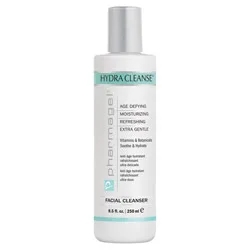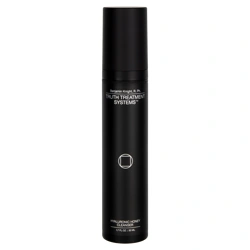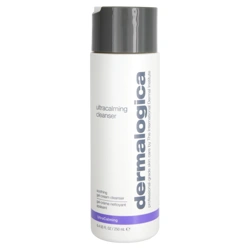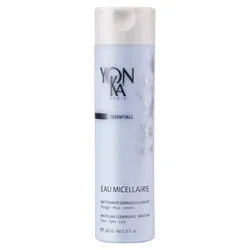When dealing with sensitive skin, washing your face can be more simple than you think. The care of sensitive skin is important and starts with a daily routine of keeping your face clean. There is a right and wrong way to wash your face, whether you have sensitive skin or not. The skin of your face is always exposed to many elements and is affected by sun exposure, debris, environmental pollutants, and the ingredients in your skincare products or makeup.
Understanding what your skin needs to stay healthy and to combat the harmful things it's exposed to daily, is the key to managing sensitive skin, starting with how you wash your face!
1. Know Your Sensitive Skin Type
With sensitive skin, it's not only important to know if you have dry, oily, combination, or normal skin, but also what type of irritation you're prone to. For example, you may have dry but acne-prone skin which requires special needs, or oily skin with flaky patches. No matter which type or skin condition, choose as few products as possible for your daily routine. Using too many products or constantly adding or trying new ones, can exacerbate your delicate skin.
2. How to Choose the Best Cleanser for Your Sensitive Skin
There are many types of sensitive skin. Just because a particular cleanser works for someone else with sensitive skin, it may not work for you. A self-patch test can help if you haven't checked with your dermatologist for ingredients you may be sensitive to. There are general guidelines you need for choosing the best cleanser for the care of your sensitive skin:
Avoid products with fragrance. Only use fragrance-free products. Not only does fragrance contain numerous toxins, but it can flare up skin conditions or cause allergies.
Plant ingredients in products may sound nice and "natural", but nothing is further from the truth. Most plants contain harsh preservatives to prevent mold, even if it's not listed on the label. Some of the most common allergy-producing ones include plant extracts, and essential oils, including lavender, peppermint, menthol, eucalyptus, and camphor.
Most anti-aging or treatment products contain harsh ingredients such as salicylic acid, glycolic acid, or retinol. Learn what your skin needs to be healthy and youthful, and choose skin care based on that, not what the label promises.
Formaldehyde, parabens, and alcohol are some of the other ingredients to look out for and avoid.
Sodium lauryl sulfate (SLS) is a harsh detergent found in many cleansers and most soaps. It can leave your face stripped of oil. Since SLS is the common ingredient in soaps, it's best to avoid them.
Facial wipes may also contain harsh ingredients as well. Waterproof makeup may be hard to clean off your face. There are more gentle ways to clean your face of makeup, as described below, than with harsh soaps and makeup removers.
3. How to Wash Your Sensitive Skin
For dry sensitive skin wash your face with a gentle mild lotion-based cleanser. These types are hydrating and will not leave your face feeling tight and itchy. Dry skin doesn't need to use an exfoliator. These abrasive scrubs can damage your skin. If you tend to have breakouts, then a gentle exfoliating scrub should only be used once a week at the most.
Wash once a day at night time with your cleanser, rinsing off well with warm or cool water, never hot. Gently pat dry with a soft towel. Make sure not to scrub too hard when washing your face or drying.
Apply a gentle hypoallergenic fragrance-free moisturizer within 3 minutes of washing your face. Opt for a cream or oil moisturizer, but stay away from mineral oil, lanolin, and petrolatum types of ingredients. These contain emollients, but also unnecessary contaminants.
In the morning only rinse, since washing with a cleanser may dry your skin more. Once a day cleansing is sufficient for dry skin. Washing too frequently will not help skin hydration, but make it more dry.
To remove makeup that your cleanser won't get off, use a cotton or cosmetic pad with a cream moisturizer. This will clean off the makeup without drying your skin. Follow with washing your face as described.
If you have oily or acne-prone sensitive skin you may think antibacterial soap is what you need, but these are irritating and can be drying. A gentle exfoliating scrub can be helpful to remove dead surface cells, allowing healthy, clear skin to surface. A gentle scrub can be used as often as once or twice a week. Avoid harsh abrasive scrubs.
4. How to wash your sensitive oily skin.
Use a gentle, oil-free lotion or gel cleanser.
Always use an alcohol-free toner with alpha hydroxy acids (AHA) following washing your face. This completes the cleaning of pores and helps balance the pH of your skin, which is important for an even tone complexion.
Wash two times a day, before you go to bed and when you wake up. Wash your hands, and wet your face with lukewarm water. Gently clean without scrubbing. Rinse with lukewarm water. If the water is too hot, the oily layer of your skin, called sebum, will be affected.
To remove waterproof makeup, use a makeup pad with a light oil-free lotion. This will be the same lotion to moisturize after washing your face.
To dry, pat your face with a soft small towel or washcloth. Change towels daily if you have acne.
Combination skin is tricky since you have dry areas as well as oily sections on your face. Be practical and cleanse dry and oily areas appropriately.


 write a review
write a review


